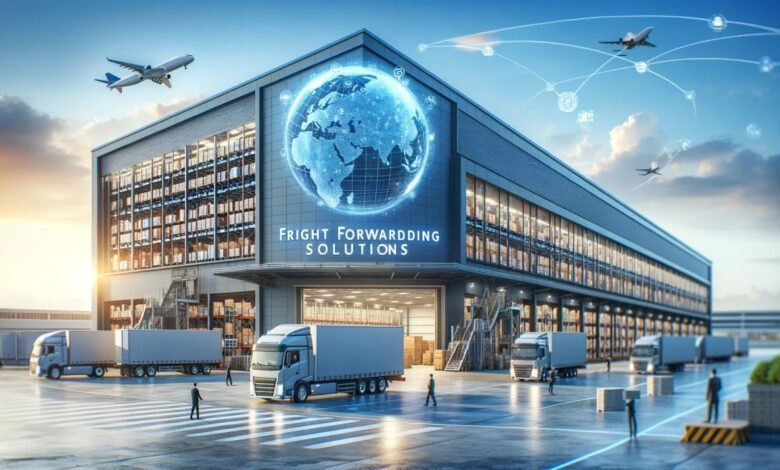International cargo shipping stands as a pivotal component, playing an indispensable role in connecting markets, enhancing trade, and fostering global relationships. At Freight Forwarding Solutions, we understand the significance of this industry and its impact on businesses and economies worldwide.
Global Economic Integration
International cargo shipping is the backbone of global trade. By enabling the movement of goods across continents, it facilitates economic integration. Products manufactured in one part of the world can be efficiently and swiftly transported to another, bridging the gap between supply and demand. This integration has led to increased economic growth, with emerging markets gaining access to global trade networks.
Enhanced Market Reach for Businesses
The ability to ship goods internationally allows businesses to expand their reach far beyond local markets. This expansion is crucial for companies looking to grow and compete on a global scale. International shipping offers businesses the opportunity to tap into new markets, diversify their customer base, and increase their competitiveness.
Supply Chain Efficiency
Efficient international shipping is fundamental to maintaining a seamless supply chain. It ensures timely delivery of raw materials to manufacturers and finished products to consumers. This efficiency is critical in industries where time is of the essence, such as pharmaceuticals or perishable goods. A well-orchestrated shipping process can significantly reduce lead times and enhance overall supply chain performance.
Cultural and Economic Exchange
Beyond its economic impact, international cargo shipping facilitates cultural exchange. It allows for the movement of goods that carry cultural significance, promoting understanding and appreciation of different cultures. This exchange enriches societies and fosters a global community.
Environmental Considerations
As an industry, international cargo shipping is also evolving to address environmental concerns. The shift towards more sustainable practices, such as using cleaner fuels and optimizing shipping routes, is crucial in reducing the environmental footprint of global shipping.
Technological Advancements
Technological advancements have revolutionized international shipping. The integration of technologies like IoT, blockchain, and AI has made tracking, managing, and optimizing shipping routes more efficient than ever. These innovations not only improve operational efficiency but also enhance transparency and reliability in the shipping
process.
1. What is Freight Forwarding?
- Freight forwarding is the coordination and shipment of goods from one place to another via a single or multiple carriers via air, marine, rail, or highway.
2. How does international cargo shipping work?
- International cargo shipping involves several steps including goods collection, storage, handling customs clearance, and arranging carriers for transportation to the destination country.
3. What are the common modes of transport in cargo shipping?
- The common modes include air freight, sea freight, rail freight, and road freight. The choice depends on factors like cost, transit time, and nature of goods.
4. How long does international shipping usually take?
- Shipping times vary based on the mode of transport and the distance between origin and destination. Air freight is typically the fastest, while sea freight takes longer.
5. What is a Bill of Lading?
- A Bill of Lading is a legal document issued by a carrier to a shipper, outlining the type, quantity, and destination of the goods being carried.
6. How is the cost of shipping calculated?
- Shipping costs depend on various factors including the mode of transport, weight and volume of the cargo, distance to the destination, and any additional services like insurance.
7. Can I track my shipment?
- Yes, modern freight forwarding services provide tracking options that allow you to monitor the progress of your shipment in real time.
8. What are customs clearance services?
- Customs clearance involves preparing and submitting documentation required to facilitate export or imports into the country, representing client during customs examination, assessment, payment of duty, and co-taking delivery of cargo from customs after clearance.
9. Do I need cargo insurance?
- While not mandatory, cargo insurance is highly recommended to protect your shipment against loss or damage during transit.
10. How do I prepare my goods for international shipping?
- Goods should be properly packaged, labeled, and documented. It’s important to comply with international shipping regulations and any specific requirements of the destination country.
11. What are Incoterms?
- Incoterms are international commercial terms published by the International Chamber of Commerce, defining responsibilities of buyers and sellers in international transactions.
12. How does Freight Forwarding Solutions handle fragile or hazardous materials?
- Special procedures and carriers are used for fragile or hazardous materials, ensuring compliance with safety regulations and safe delivery.
Conclusion
International cargo shipping is more than just transporting goods from one place to another; it is a catalyst for global trade, economic growth, and cultural exchange. At Freight Forwarding Solutions, we are committed to leveraging our expertise to facilitate efficient and reliable shipping services. By understanding and embracing the importance of this industry, we contribute to a more connected and prosperous
world.



